
China
20:27, 16-Oct-2017
Ask China: A day with an 'Ultrasound detective'
CGTN

When Scotland Yard got stuck on a case, officers turned to the almighty detective Sherlock Holmes for help. When pediatric surgeons are at their wits’ end, they consult “ultrasound detective” Jia Liqun for diagnosis suggestions.
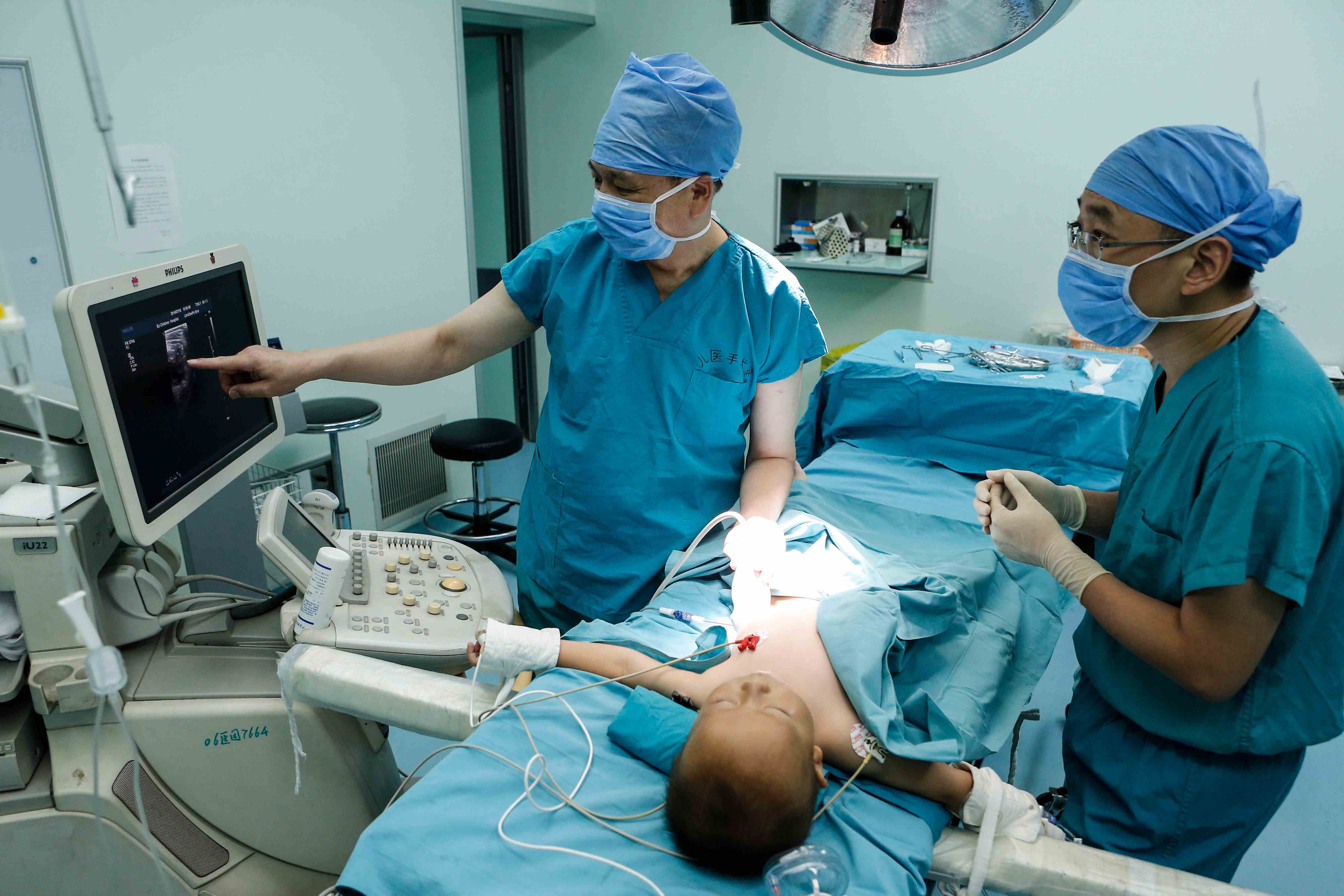
Dr. Jia working in an operating room. /Beijing Children's Hospital Photo
Dr. Jia working in an operating room. /Beijing Children's Hospital Photo
Of course, Dr. Jia is not really a detective like Holmes. But the 64-year-old pediatric expert, who is now honorary director of the ultrasound department at Beijing Children’s Hospital, has been working with children for almost 40 years.
Known for his top-notch diagnostic skills, the ultrasound expert has seen more than 330,000 patients, diagnosed over 70,000 difficult cases and helped save over 2,000 children with severe illnesses or health conditions.
On a rainy day recently, CGTN followed Dr. Jia as he went about his day and got a behind-the-scenes glimpse at a Chinese doctor’s daily routine.
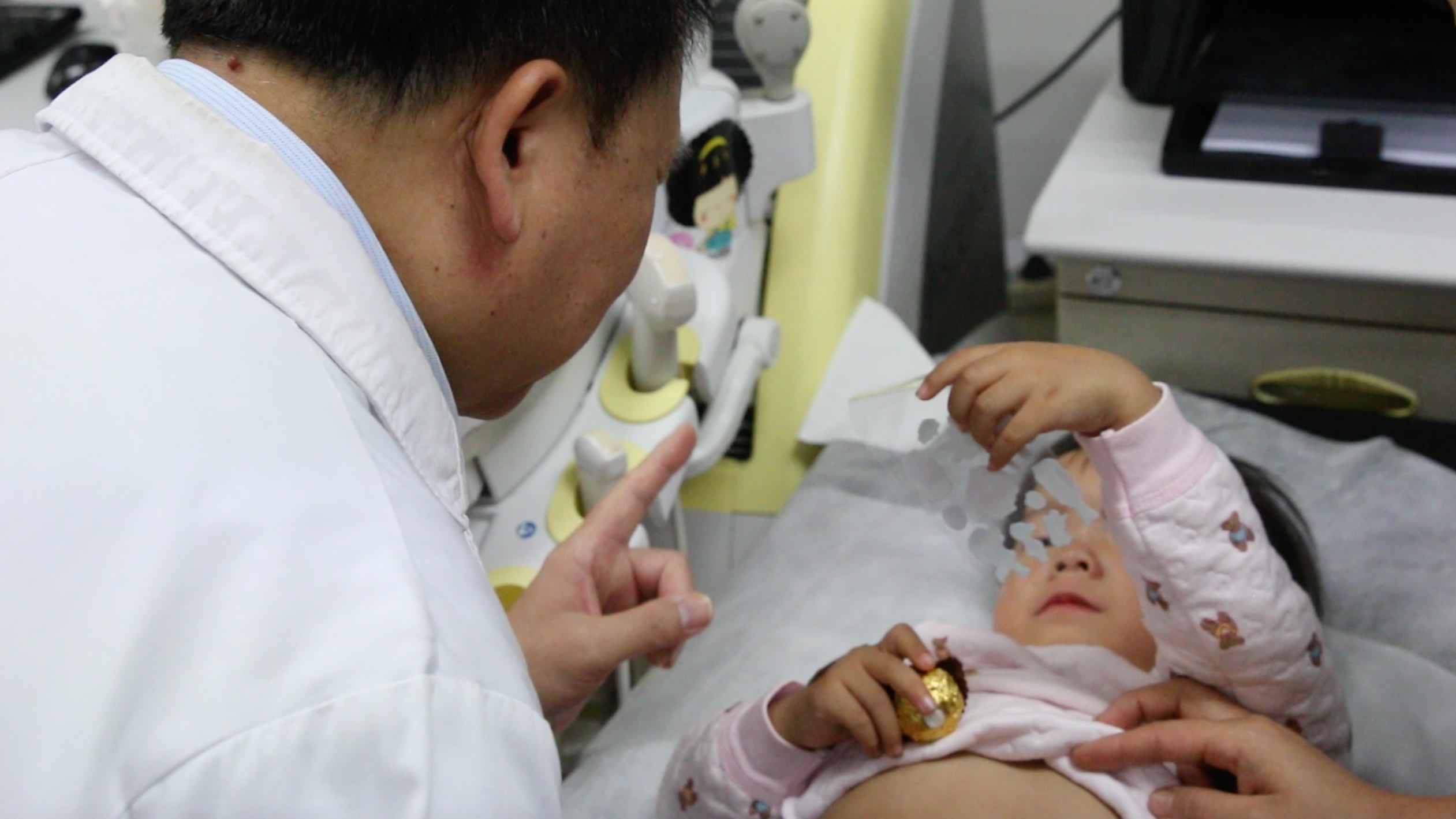
Dr. Jia comforting a young patient. /CGTN Photo
Dr. Jia comforting a young patient. /CGTN Photo
“I’m on call 24/7.”
Over 10,000 young patients are brought by their parents from across China every day to seek help from the country’s top pediatric specialists at Beijing Children’s Hospital.
Dr. Jia’s department receives about a tenth of this overwhelming crowd of children and anxious relatives. About 12 doctors per shift serve over 800 young patients and the examination room is always packed.
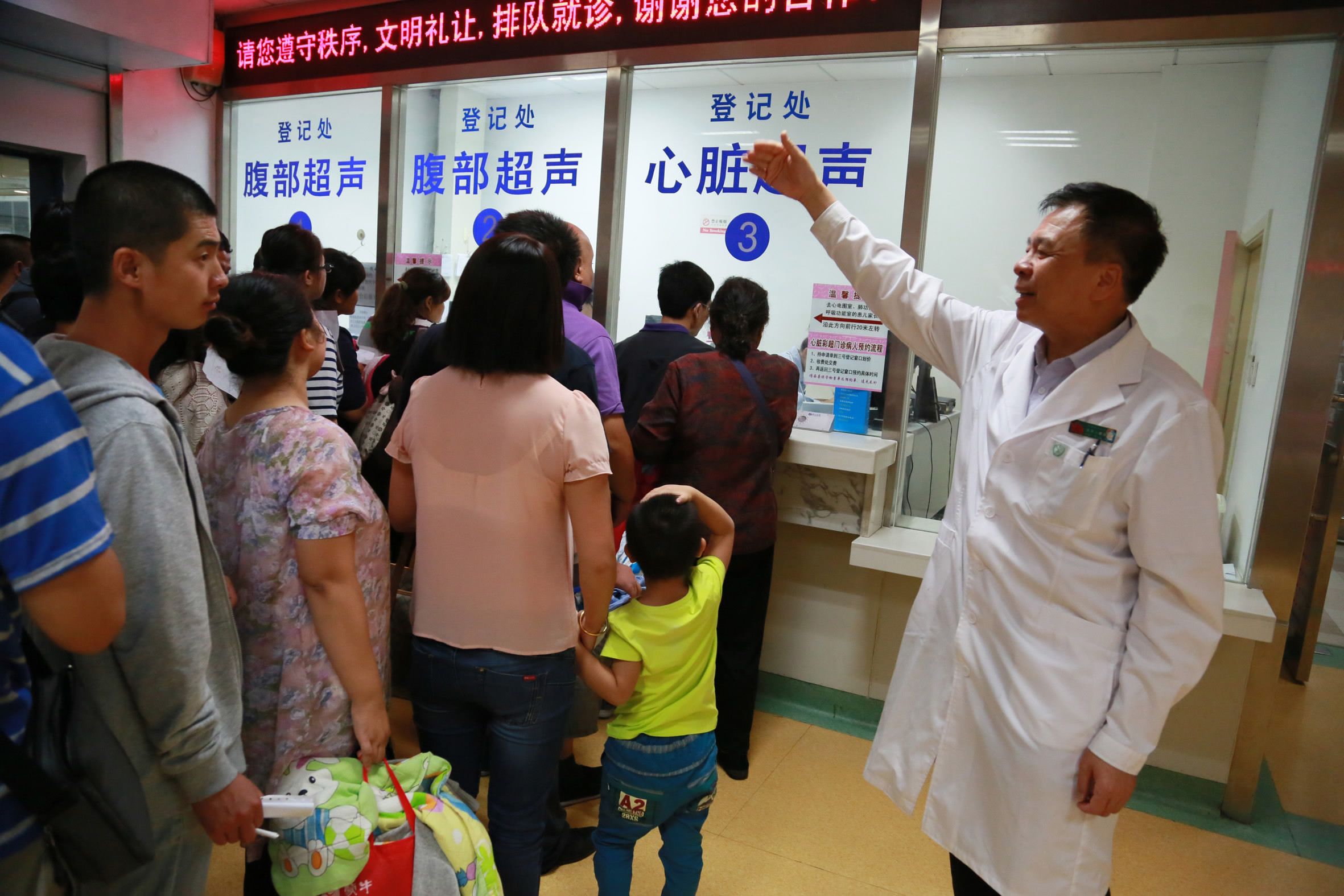
Dr. Jia guiding patients and their parents. /Beijing Children's Hospital Photo
Dr. Jia guiding patients and their parents. /Beijing Children's Hospital Photo
To save time and be available at all hours, Dr. Jia has lived with his family in a staff residential apartment building, just a short walk from the hospital, for the past 30 years.
He even has a private key to the gate usually reserved for the fire department, shortening his route to the hospital so that he can reach the emergency room within three minutes.
“Many emergency cases require ultrasound exams to provide first-hand information for making further treatment decisions, so I need to be there to do ultrasound exams for the kids, even if it’s in the middle of the night,” Dr. Jia told CGTN.
He was once called to the emergency room 19 times in just one night, prompting his wife to bitterly joke that he was doing sit-ups rather than sleeping.
“What does Dr. Jia’s ultrasound say?”
Dr. Jia is not just sought after in emergency situations. When they cannot find the location of a tumor or need assistance for a biopsy procedure, even the most experienced physicians at the hospital are in the habit of asking: “what does Dr. Jia’s ultrasound say?”
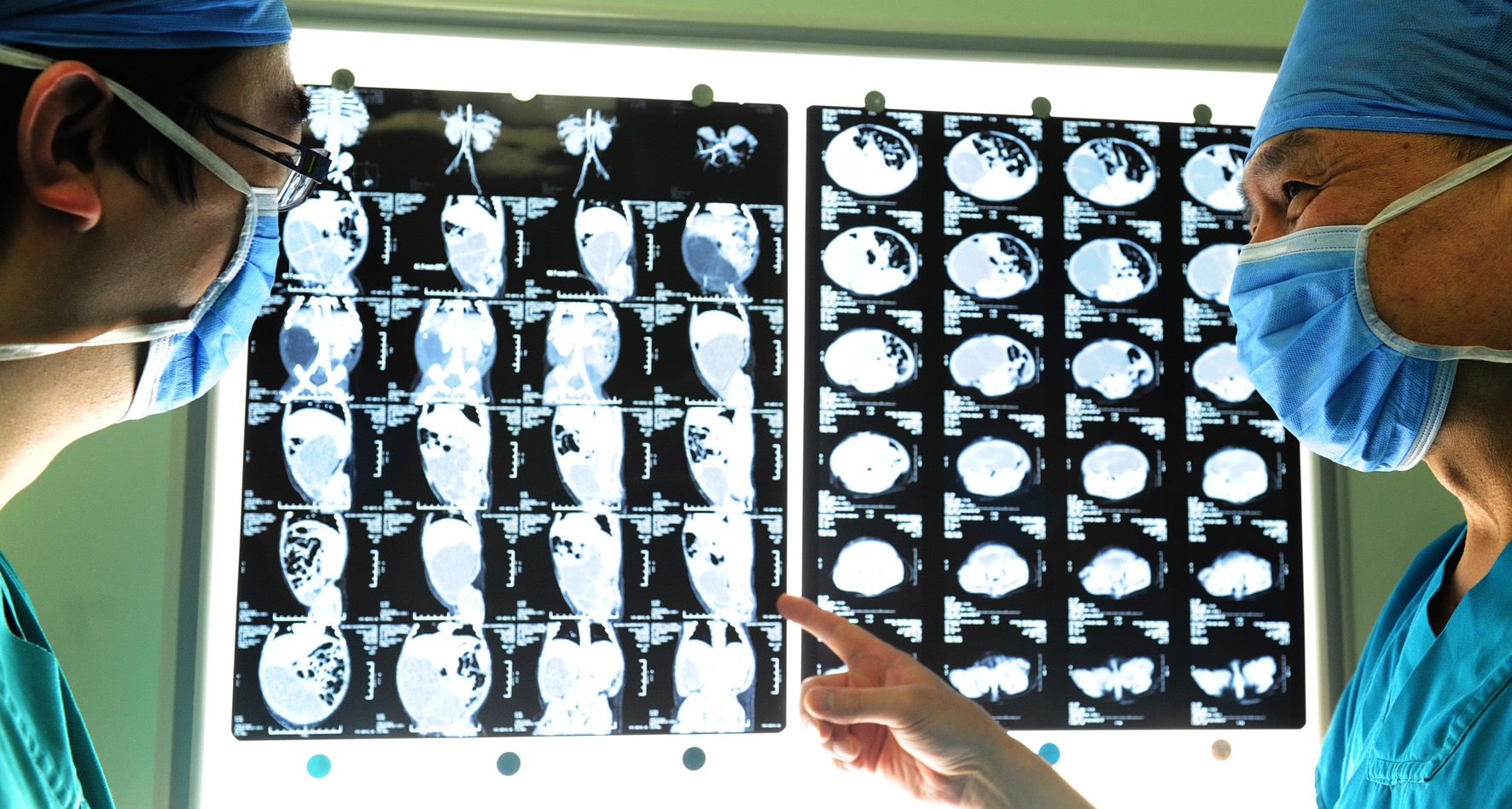
Dr. Jia discussing a patient's condition in an operation. /Beijing Children's Hospital Photo
Dr. Jia discussing a patient's condition in an operation. /Beijing Children's Hospital Photo
This happened several times during CGTN’s visit. But the surprising thing is that Dr. Jia did not even have formal training in this field when he started from scratch three decades ago.
“I was a radiologist for 10 years before the hospital asked me to set up a whole new department focused on ultrasound diagnosis,” he told CGTN. “I spent a year studying in a general hospital, and then I was left by myself to study, research and practice.”
To improve his diagnostic skills and accumulate experience, Dr. Jia made it a habit to follow up on his patients’ conditions even after they had left his examination room.
“I wanted to know if my primary diagnosis was precise enough. I would go into the operating room and see for myself if the length of a rupture or the volume of blood I had detected was accurate,” Dr. Jia said.
“Building a team of respectable medical skills and ethics”
His perfectionism and scrupulous working attitude have influenced his team, which has grown from just three people in 1989 to nearly 30 now.
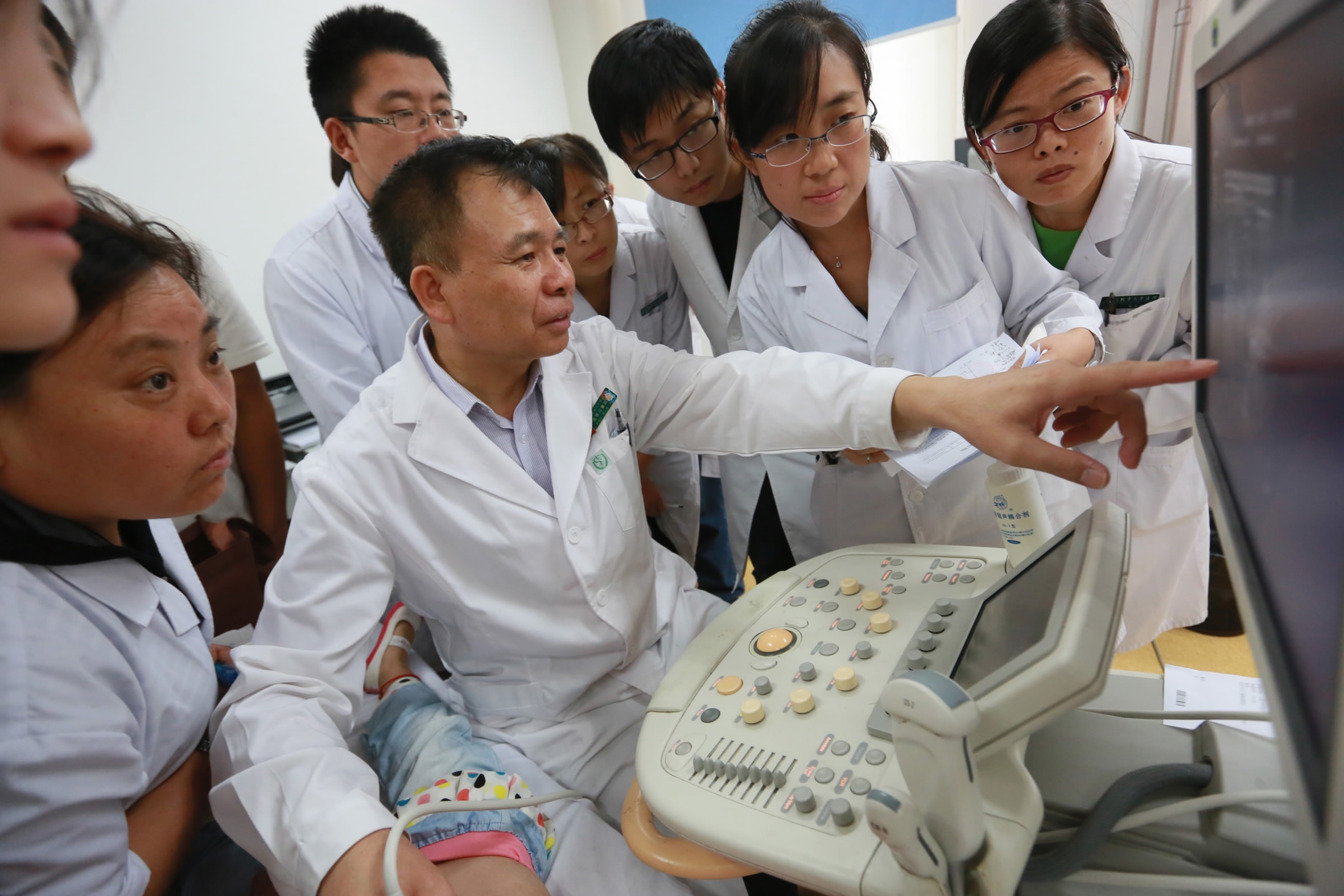
Dr. Jia instructing his students. /Beijing Children's Hospital Photo
Dr. Jia instructing his students. /Beijing Children's Hospital Photo
“Dr. Jia’s working philosophy is that accuracy is key,” said Wang Xiaoman, the current head of the department. “But besides his refined skills, it is also his modesty and dedication that lie at the core of our team.”
Given the number of patients they receive every day, many on the team need to work 10-hour shifts or longer to shorten patients’ waiting time. But no one ever complains.
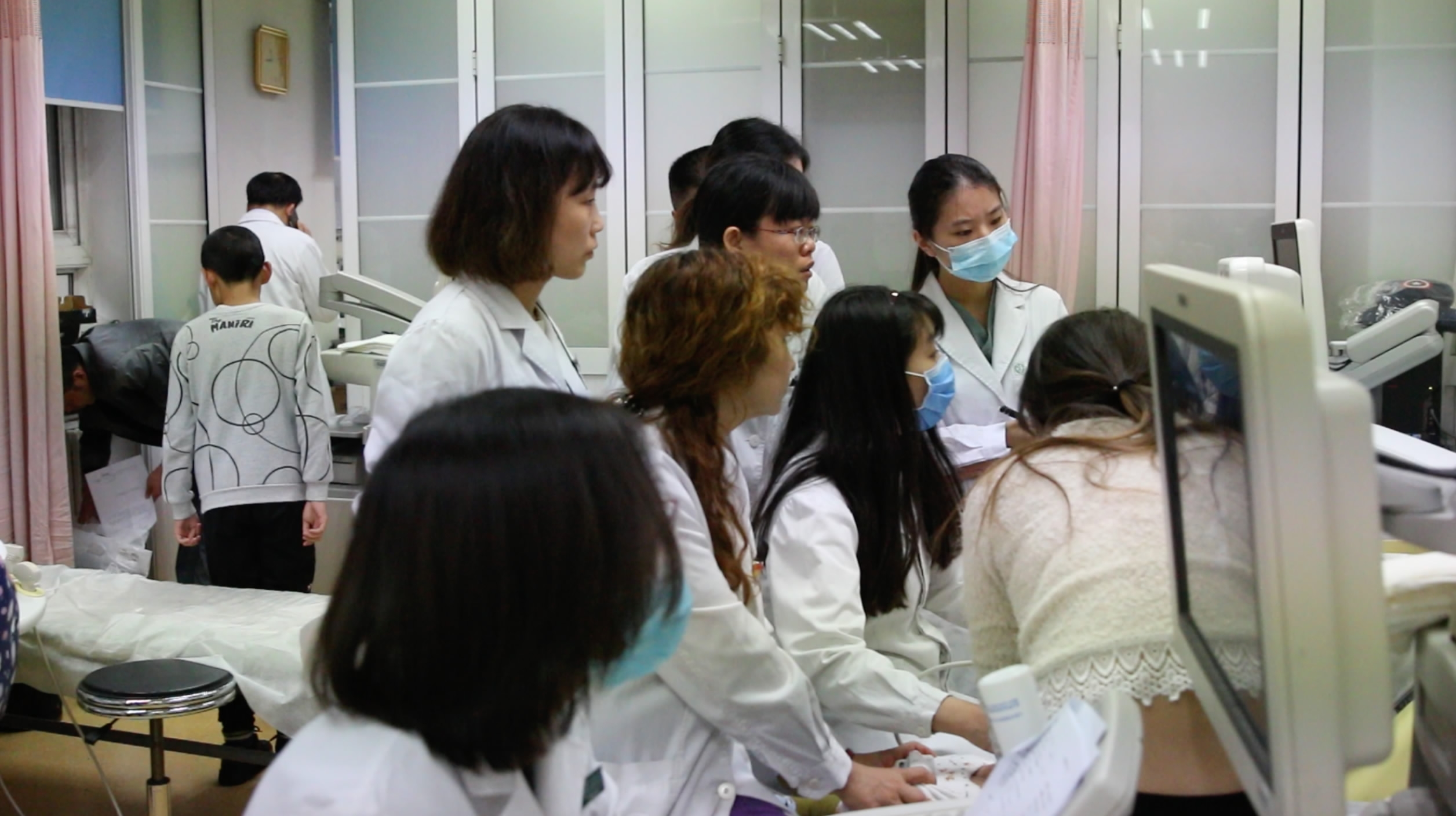
Ultrasound specialists working in the examination room. /CGTN Photo
Ultrasound specialists working in the examination room. /CGTN Photo
“What I’ve always tried to do is to build a team with respectable medical skills and ethics,” Dr. Jia said.
He says he has no plans for retirement yet. “As long as patients need me, as long as the hospital needs me, I’ll continue serving my patients.”
“Between patients and doctors”
There are some 12,700 public hospitals like Beijing Children’s Hospital in China, providing 2.85 billion consultations per year, including diagnosis and treatment, according to the National Health and Family Planning Commission (NHFPC).
With so many patients in need of skilled doctors, supply doesn’t always meet demand and conflicts between patients and doctors have occasionally arisen.
“Healthcare service in local, primary hospitals is still at a developing stage, so many worried parents only want to seek help in hospitals in larger cities like Beijing or Shanghai,” Dr. Jia told CGTN. “That’s why the NHFPC encourages doctors from primary hospitals to further study at first-class hospitals and sends experienced doctors to local hospitals.”
“More importantly, there’s a lack of mutual understanding between patients and doctors so disputes break out,” Dr. Jia added.
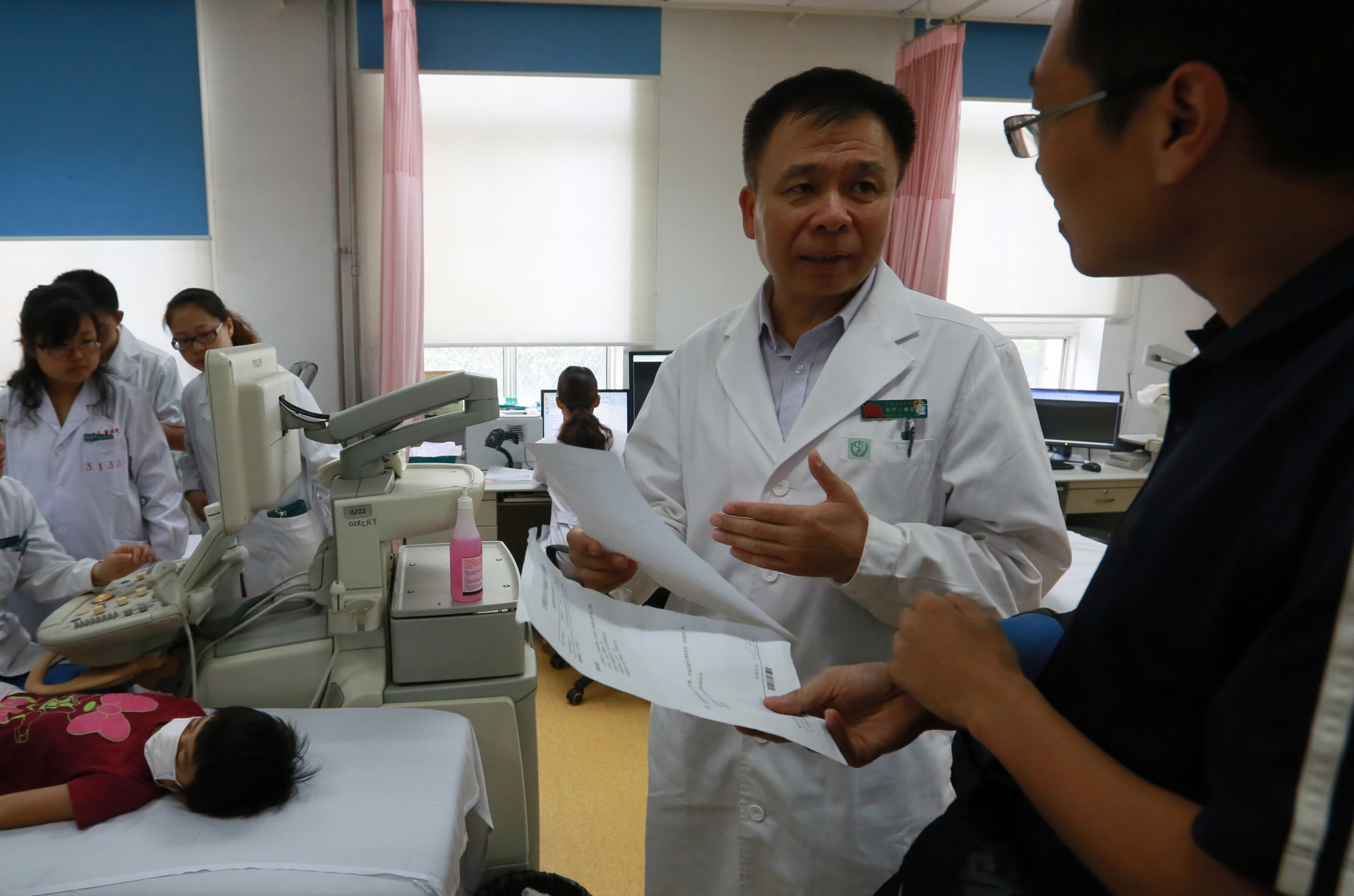
Dr. Jia communicating with a patient's parent. /Beijing Children's Hospital Photo
Dr. Jia communicating with a patient's parent. /Beijing Children's Hospital Photo
“I pay attention to my attitude. Sometimes parents do lash out at me, but I just keep smiling,” he said. “All we need to do is to communicate.”

SITEMAP
Copyright © 2018 CGTN. Beijing ICP prepared NO.16065310-3
Copyright © 2018 CGTN. Beijing ICP prepared NO.16065310-3